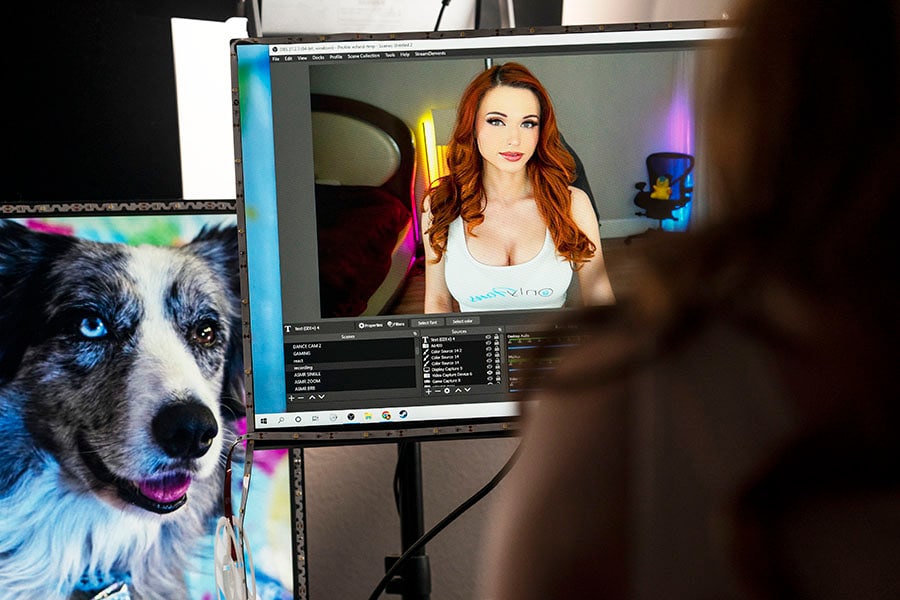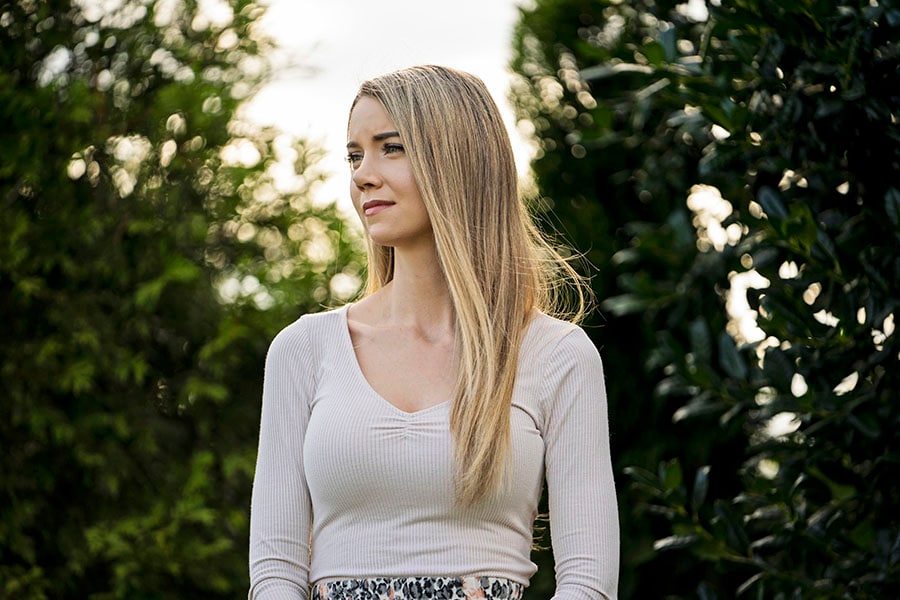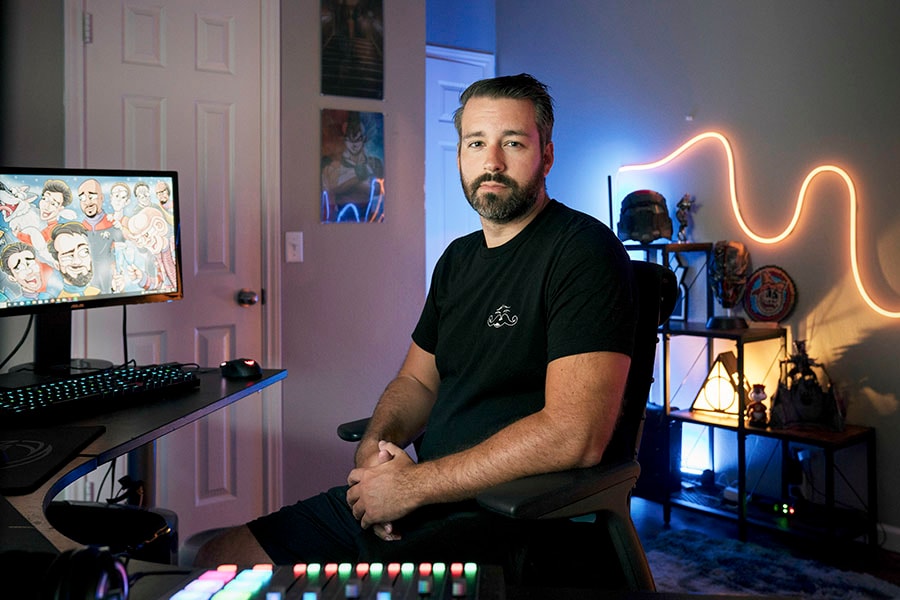
How streaming stars pay the price of online fame
Twitch, more than Instagram, Twitter or TikTok, is an intimate platform, designed to make its stars seem like actual friends of their fans, hanging out virtually with them. Those cozy relationships are a core part of the site's business model. But they sometimes turn unhealthy
 The social media star Kaitlyn Siragusa, in Katy, Texas, on June 29, 2022. Siragusa doesn’t know what more she can do to protect herself, she said, “besides build a moat with crocodiles.” (Go Nakamura/The New York Times)
The social media star Kaitlyn Siragusa, in Katy, Texas, on June 29, 2022. Siragusa doesn’t know what more she can do to protect herself, she said, “besides build a moat with crocodiles.” (Go Nakamura/The New York Times)
The unwanted visitor rapped on Kaitlyn Siragusa’s front door and peered through the windows of her home on the outskirts of Houston. When she did not answer, he walked around to the back of her house and jiggled a doorknob there.
He had been sending Siragusa, 28, unsettling messages for months and said online that he had sold his home and possessions in Estonia to fly halfway around the world to find her.
“I’m sorry that it took me too long to get here. It was a hell of a challenge,” said the man, captured by Siragusa’s security cameras in June. Then, speaking to his phone, which he was using to livestream the visit, he added: “But I’m here now.”
The man was one of Siragusa’s 5 million followers on Twitch, where she goes by Amouranth. She called the police, who eventually came and detained him. The incident was terrifying, she said, but it wasn’t the first time she had dealt with what is increasingly going hand in hand with being a high-profile streamer on Twitch: harassment and stalking.
Twitch is best known as a place where people livestream themselves playing video games, but there’s more there these days, ranging from cooking demonstrations to political commentary. While Siragusa does occasionally play Raid: Shadow Legends or GeoGuessr, her all-day, hourslong broadcast is more like a cabaret variety show.
©2019 New York Times News Service









